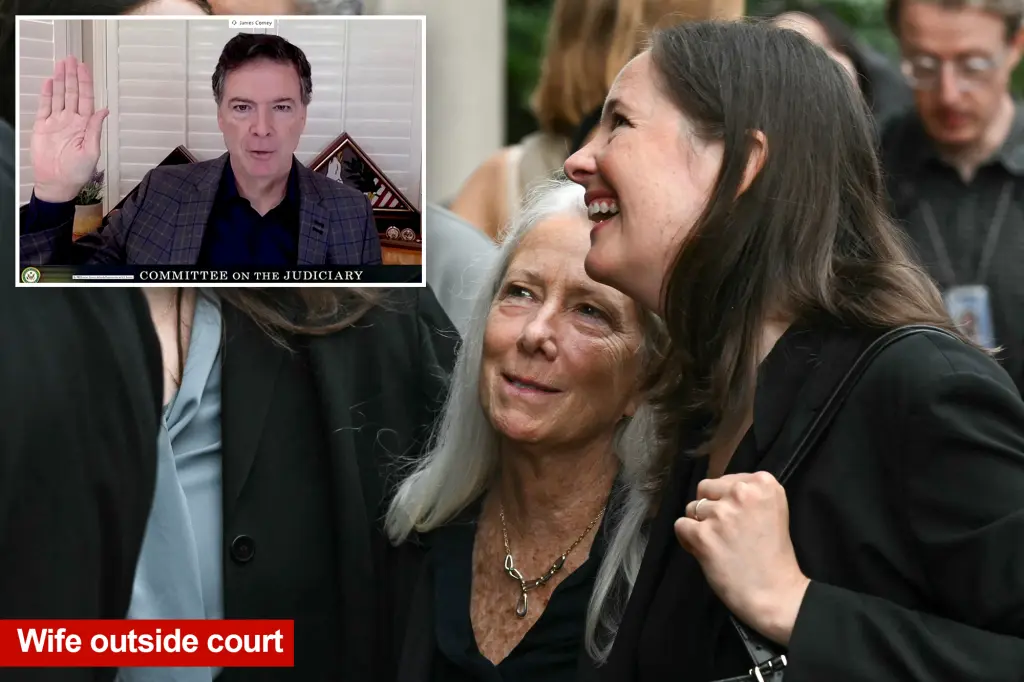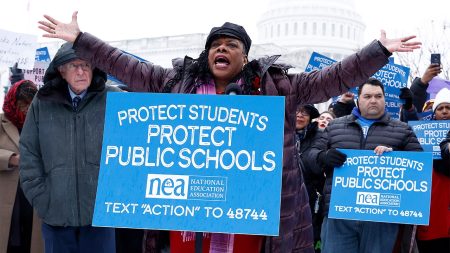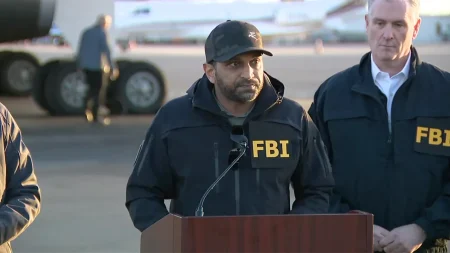Former FBI Director James Comey Faces Unprecedented Criminal Charges
In a historical turning point for American legal and political norms, former FBI Director James Comey will stand before a federal court in Alexandria, Virginia this Wednesday to face criminal charges that many legal experts view as politically motivated. Charged with making false statements and obstructing a congressional investigation, Comey represents the first of President Trump’s political adversaries to face prosecution by the Justice Department in what critics call a dangerous departure from the department’s traditional independence. The charges stem from testimony Comey gave during a 2020 congressional hearing, where he allegedly made false statements regarding his authorization of an FBI employee to serve as an anonymous source to news outlets. Though Comey is expected to plead not guilty, the case has sent shockwaves through Washington’s legal community, with over 1,000 Justice Department alumni from both Republican and Democratic administrations signing a letter condemning the prosecution as “an unprecedented assault on the rule of law.”
The prosecution’s unusual circumstances have raised significant alarm across the political spectrum. The case is being handled by Lindsey Halligan, Trump’s former personal attorney who was recently appointed as U.S. Attorney for the Eastern District of Virginia after Trump removed her predecessor reportedly for refusing to pursue charges against Comey and New York Attorney General Letitia James. Adding to concerns about the prosecution’s legitimacy, career attorneys within the Justice Department had previously drafted a memo advising against seeking an indictment, citing insufficient evidence to establish probable cause. In what observers describe as a highly irregular move, the government has brought in federal prosecutors from Raleigh, North Carolina to handle the case instead of relying on the traditional team from the district where charges were filed. The indictment itself is notably vague, apparently relating to the investigation of Hillary Clinton during the 2016 election, though it fails to detail specific evidence against Comey.
The timing and circumstances surrounding Comey’s indictment have drawn particular scrutiny from legal observers. The charges emerged shortly after President Trump publicly complained about a lack of action against his perceived enemies, suggesting direct political influence over prosecutorial decisions. This apparent responsiveness to presidential demands represents a significant breach of the longstanding norms designed to protect the Justice Department’s independence from political pressure. Halligan, who prosecutors note has no prior prosecutorial experience and previously worked as an insurance attorney, personally presented evidence to the grand jury despite internal Justice Department concerns about the case’s merit. These developments align with Trump’s repeated campaign promises dating back to 2016 to imprison his political opponents, rhetoric that many constitutional scholars have warned undermines democratic principles.
This case carries particular symbolic weight given the history between Trump and Comey. During his first term, Trump fired Comey while he was overseeing the FBI’s investigation into contacts between Trump’s 2016 campaign and Russia. That dismissal triggered widespread criticism and led to the appointment of Special Counsel Robert Mueller, whose investigation became a significant challenge for Trump’s first administration. Although Mueller’s investigation ultimately concluded there was insufficient evidence to establish a criminal conspiracy between the Trump campaign and Russia, the relationship between Trump and Comey has remained contentious. The current prosecution appears to many observers as the culmination of a personal vendetta rather than a legitimate pursuit of justice, particularly given the unorthodox handling of the case and the departure from prosecutorial norms.
Beyond Comey, the Justice Department under Trump’s direction appears to be actively investigating several other prominent critics of the president. Reports indicate that New York Attorney General Letitia James, Democratic California Senator Adam Schiff, and even John Bolton—who served in Trump’s own administration—are currently under investigation. This pattern suggests a systematic effort to use federal law enforcement powers against the president’s perceived adversaries, raising profound questions about the independence of American justice institutions. Many legal experts fear this represents a dangerous precedent where law enforcement becomes a tool for settling political scores rather than administering justice impartially, potentially eroding public confidence in these institutions regardless of the outcome of individual cases.
The prosecution of James Comey therefore stands as a watershed moment in American legal history, testing whether the traditional guardrails that have kept politics and prosecution separate can withstand direct presidential pressure. As Comey prepares to enter his plea, the case has become emblematic of larger concerns about the rule of law and the independence of the Justice Department. The outcome will likely influence not only Comey’s personal future but also fundamental questions about institutional integrity and the separation of powers in American democracy. For many observers across the political spectrum, the unprecedented nature of this prosecution against a former FBI Director represents not merely a legal proceeding against one individual, but a challenge to long-established democratic norms that have historically kept the administration of justice independent from political vendettas.











